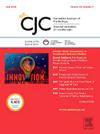心源性休克小组在机械循环支持决策中的作用。
IF 5.8
2区 医学
Q1 CARDIAC & CARDIOVASCULAR SYSTEMS
引用次数: 0
摘要
心源性休克(CS)具有很高的死亡率,对心血管专家来说仍然是一个挑战。治疗CS的困难在于其复杂性,表型异质性和需要权宜治疗。新出现的证据表明,心源性休克小组(CS小组)由多名专家组成,在设定的方案和护理途径下协同工作,提供标准化的团队护理,可以降低心源性休克患者的死亡率和发病率。改善结果的一个关键原因可能是团队围绕使用临时机械支持装置(tMCS)的决定。CS团队加快识别需要tMCS的患者,并根据患者因素(包括休克表型)确定最合适的设备。CS团队确保遵循tMCS最佳实践,并协助确定设备升级或降级的时间。本文将讨论CS团队的基本原理和作用。CS团队背后的证据及其对tMCS决策的影响将被审查。最近的试验证据使用tMCS在继发于急性心肌梗死(AMI)的CS将被检查。重点介绍创建和优化AMI-CS团队的注意事项。最后,我们将研究目前CS团队的使用,潜在的挑战和在加拿大建立CS团队的未来方向。本文章由计算机程序翻译,如有差异,请以英文原文为准。
The Role of a Cardiogenic Shock Team in Decision Making Surrounding Mechanical Circulatory Support
Cardiogenic shock (CS) confers high mortality rates and remains a challenge for cardiovascular specialists. The difficulty in treating CS lies in its complexity, phenotypic heterogeneity, and the need for expedient treatment. Emerging evidence suggests that cardiogenic shock teams (CS teams), consisting of multiple specialists working in tandem with set protocols and care pathways to offer standardized team-based care, may reduce mortality and morbidity in patients with CS. A key reason for improved outcomes may be the team’s decisions surrounding the use of temporary mechanical support devices (tMCS). CS teams expedite the identification of patients who require tMCS and determine the most appropriate device based on patient factors, including shock phenotype. The CS team ensures that tMCS best practices are followed and assists in determining the timing of device escalation or de-escalation. This article will discuss the rationale and role of CS teams. The evidence behind CS teams and their impact on tMCS decision making will be reviewed. Recent trial evidence for the use of tMCS in CS secondary to acute myocardial infarction (AMI) will be examined. Considerations for creating and optimizing an AMI-CS team will be highlighted. Finally, we will examine the current use of CS teams, potential challenges, and future directions for establishing CS teams in Canada.
求助全文
通过发布文献求助,成功后即可免费获取论文全文。
去求助
来源期刊

Canadian Journal of Cardiology
医学-心血管系统
CiteScore
9.20
自引率
8.10%
发文量
546
审稿时长
32 days
期刊介绍:
The Canadian Journal of Cardiology (CJC) is the official journal of the Canadian Cardiovascular Society (CCS). The CJC is a vehicle for the international dissemination of new knowledge in cardiology and cardiovascular science, particularly serving as the major venue for Canadian cardiovascular medicine.
 求助内容:
求助内容: 应助结果提醒方式:
应助结果提醒方式:


